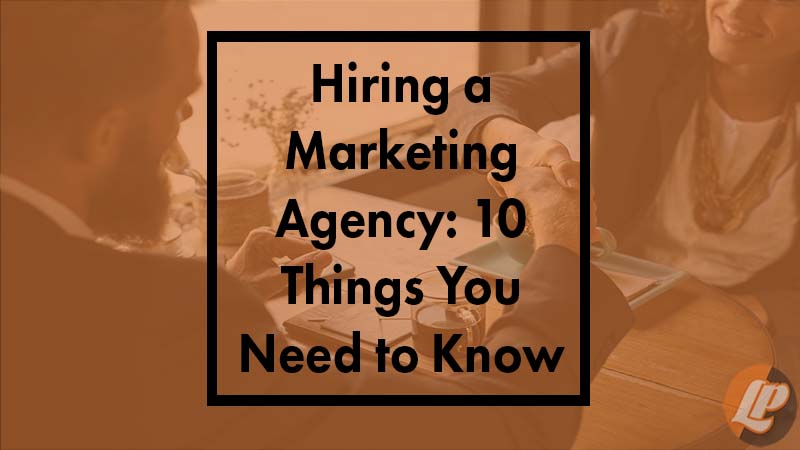Why is it that so many people feel burned by marketers? Why has the industry been plagued with fly-by-night, fast talkers who over promise and under deliver? And what about the people who know enough about marketing only to be dangerous? As the owner of a great agency with a proven track record, I meet with business owners daily. I can tell you that 6 out of 10 have been burned and I have grown custom to knowing I will need to provide proof of my past success stories to any new prospect.
Hiring a marketing agency isn’t like buying a bike. In most cases, we speak a different language. If you don’t speak that language, you have to trust that we know what we are talking about. That makes it tough to hire a competent marketer. So here is a quick guide on how to hire an agency that will produce great results for your business.
- Make sure they have a location – Anyone can work out of their house. I’m not saying every good agency has an office, but I AM saying that anyone claiming to be a business should have a place of business you can walk into at any time to do business with them.
- They have a team in-house – Any good agency is made up of a team. Each member specializes in one aspect of marketing that the others do not, adding tremendous strength to the team. These are dedicated, full-time individuals. Agencies will outsource certain things, and that’s fine. But there should be a core group of people running things in-house.
- Ask to see case studies – If someone claims they can effectively market a business, you should ask to see proof. After my initial meeting with a potential client, I email them what I call my “proof deck.” This is a private website that has intimate breakdowns of previous projects, testimonials, and examples of different services we offer.
- Do they have testimonials from business owners you recognize? – A local agency should have worked with people in your area, and those people should be happy to give a testimonial. Ask for testimonials.
- Look at their website – A good website is a resource. It should offer you tools that will provide you value and give you a taste of what it’s like to work with them. It should cast out a feeling for their brand and make attempts to capture your information. And when you leave, it should try to pull you back in. Isn’t that what you would expect your site to do if you hired a professional agency to build it? Make sure their site functions the way you would expect yours to work.
- How do they rank in Google? – How do THEY rank? They have strong SEO capabilities, so their own business should be ranking well. Perform a Google search for “marketing [insert your city name],” and see where they show up. The most reputable agencies should be ranking within the top results of the page.
- Read reviews – Any reputable agency will have reviews. Check Google and Facebook to see what kind of reviews customers are leaving.
- Ask about their process – This is an important question. If they are not starting the process with a discovery meeting or workshop to gather information about your business, how could they effectively produce results? If they are providing digital services and they don’t include analytics or detailed reporting, how could they create a real strategy? Every professional agency has proven processes.
- They promise the world – A great agency knows that a good marketing strategy takes time to build. They should be honest and upfront about the time into the project. They will not promise over-the-top results on what your return on investment will be. But they should be able to give you an idea of expected ROI based on the information gathered and the set goals.
- Digital Marketing – In today’s world, everything is online. There are some agencies who have not yet made the leap from using traditional media to digital marketing efforts. This can be the difference between a successful and a failed marketing campaign. Any marketing agency you consider should be well-versed in digital marketing. To create results, an agency should know the ins and outs of conversion optimization, programmatic buying, SEO, content creation, and industry and competitor analysis. These are all pieces to a well-optimized marketing strategy, and the agency should know how to put it all together.

